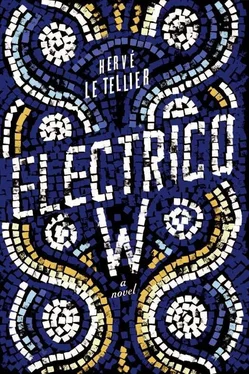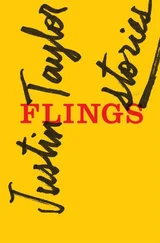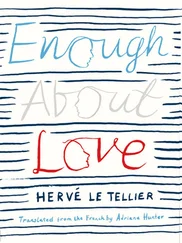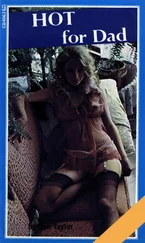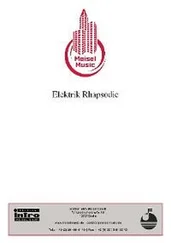With a flick of her wrist she swishes her black hair over her shoulder. Tonio doesn’t know this yet but it’s a woman’s gesture.
“Do you run after the Eléctrico like that every day? I’ve never seen you.”
“Usually it’s the eighteen minutes past.”
“Really?”
She sits down on a large granite bollard, playing with the dust with the tip of her sandal.
“And will you be late again tomorrow?” she asks.
“No, I’ll be on time tomorrow.”
“So we won’t see each other again. That’s your bad luck. Well, hi from Duck.”
She stands up and runs off, and Tonio watches her until she turns the corner at the top of the street and disappears.
The next day Tonio left late again. The little girl was there, on the bollard. She had already let one W go by, and had left her mother wondering why she had got up so early.
FOR HIS FIFTEENTH birthday, Tonio is given a camera, a Russian Zenit E which is cheap and temperamental, nothing is automatic and it weighs as much as an iron. His family insists he take his first picture. He refuses. It will be of Duck.
A LITTLE LATER, one January morning, it snows in Lisbon. Tonio is waiting for Duck at the huge viewpoint on the rua Santa Catarina which overlooks the docks and the port. Duck is late, and Tonio is hopping from one foot to the other, wearing an old fur-lined jacket given to him by his father, it makes him look like a soldier. Duck is now thirteen, she is almost as tall as he is, although he’s nearly sixteen, and her youthful face already radiates a more unsettling beauty. Tonio still calls her Duck, has never stopped calling her that. He is cold, really cold, he stamps his feet on the frozen ground. In the distance, on the icy, muddy waters of the Tagus, the ferry heading for Barreiro passes the one arriving from Seixal and salutes it with a blast of its horn.
Antonio waits. Duck has been late before, but this morning he feels a new twinge of anxiety, an inexplicable but mild apprehension. It is market day and he lets his eye roam over the crowd of passersby. He thinks he spots her a hundred times, in a flyaway lock of hair, the pattern on a dress, a stranger’s gait. Every time he gets that fleeting quiver, that constriction deep inside him, and each time the disappointment. The waiting feels easier because of this endlessly impatient searching.
All at once, woolen fingers warm with life come and cover his face, startling him.
“Don’t turn around,” she says. “Close your eyes.”
He obeys with a smile. The woolen fingers slip away. He can guess, Duck is in front of him, her breath is chocolaty, blowing warmly over his chin.
“Make sure your eyes are closed, don’t cheat.”
The fingers slide over his temples, into his hair, gently drawing him closer. Tonio’s lips feel the touch of other lips, that open slightly. He stops breathing and opens his eyes, just as Duck closes hers, he has never seen them from so close, those long eyelashes resting on the soft pink of her cheeks. She pushes him away, just a little, then presses herself to him again.
“You looked,” she whispers in his ear.
She pulls away, takes him by the hand and drags him toward the railing of the viewpoint. Snowflakes twirl around them, catching in their hair as it flies in the wind, it is a north wind, blowing a little harder now. On the Tagus, the ferry from Barreiro goes into reverse, its propellers churning the dirty water into shining creamy whirlpools. Tonio looks lost, helpless, he wishes he could talk but can’t manage a single word. Duck comes over to him and puts her arms around him. Then she takes off her gloves and slips her hands into his.
“Warm me up, Tonio, I’m cold.”
Duck’s fingers touch his, squeeze them. Something’s different. Tonio’s eyes cloud over, he turns to look at her, but she puts a finger over his mouth and he knows he mustn’t speak.
All she says is, “Tonio … I’m a woman, today.”
He doesn’t understand.
“I’m a woman,” she repeats.
She spoke the words softly, and Tonio senses that she wants to lead him into another world, a world too big for him, and mysterious too, a world deeper than the sea, and he wants to follow her there, in spite of everything. Then he wants to speak, to let out all the words welling up inside him, but she kisses him again, he holds her to him: it is their first true kiss.
THE NIGHT SHE was fifteen, Duck met up with Tonio. It was one of those luminous stifling August nights scattered with shooting stars you could almost hear whistling through the sky. Tonio and Duck took cover in the W’s tunnel because the next day was Sunday and the tram doesn’t run on Sundays. They lay down on the air mattress Tonio had blown up and spread with a big thick bedcover that smelled of bleach and lavender. A family of bats lived in the roof but Tonio made sure they wouldn’t do them any harm.
“You’ll still have to protect me, Tonio.”
She presses herself to him. She has put a drop of perfume on the back of her neck, and Tonio breathes in its musk and dark fruits.
They stay like that for a long time, not daring to talk, and it is in that position that they fall asleep. In the morning, when the dawning day sends long shadows into the tunnel, they make love, with trusting awkwardness. Everything is new, their bodies so alive they don’t exist.

AT THIS POINT Antonio’s voice cracked and he sat in silence. For a moment I hoped he had invented the story. I was jealous, felt as miserable as a vagrant who has wandered by mistake into the summer garden of an Eastern prince and, in his filthy tattered state, has to drift among its marble fountains, its orange trees and date palms. Antonio finished his brandy and we headed back to the hotel, walking slowly. He was shivering in the warm night air. I gathered he wasn’t lying.
Duck was pregnant. “I’ll kill him,” her father bellowed, “do you hear me? I’ll kill him.” She wanted to run away, join Tonio, but her father caught up with her in the street and beat her to the ground, in front of the neighbors, with hideous words, and every time he struck her she picked herself up and cried, “I’m not ashamed, I’m not ashamed, you can’t make me feel ashamed.”
That same evening Duck was confined to the house, then sent far away, hidden with an elderly cousin in Braga by all accounts, and Antonio had to leave Lisbon. I couldn’t understand this sudden fury. Was it all that catastrophic? Of course, Antonio told me. Abortion and pregnancy outside marriage were unthinkable. This was the 1970s, the calamitous closing phase of the Estado novo , the years of Salazar’s dictatorship, and of a rural Portugal that has now been forgotten but was fervently behind Salazar, Roman Catholic and illiterate. Sister Maria Lucia of the Immaculate Heart was reverentially interviewed on television as she blew out her sixty candles at her Carmelite convent, because she had once been Lucia Dos Santos, one of the three child seers of Fatima to whom the Blessed Virgin appeared six times in 1917. Yes, those were the days of the three F’s: Fatima, fado, and football.
Antonio left for Paris, where an uncle took him in. First he sold newspapers, then he learned to draw and perfected his photographic skills.
“I’ll always wait for you,” Duck had promised, and from his Paris exile Antonio wrote dozens of letters that he sent to a mutual friend. A few weeks later Duck’s father and his wife moved house, it was even said they moved out of Lisbon. Neither Antonio nor anyone else ever had news of Duck again. I asked no more questions.
We were still walking, the street had turned into a staircase and Antonio fell silent again, his eyes lowered. With his thumb he stroked a very narrow ring, a ring so simple that — I am quite sure of it now — it can only have been made of copper, perhaps even a curtain ring. I knew that, at that same moment and wherever she was, on Duck’s left hand there was an identical wedding ring with the same red glint.
Читать дальше
